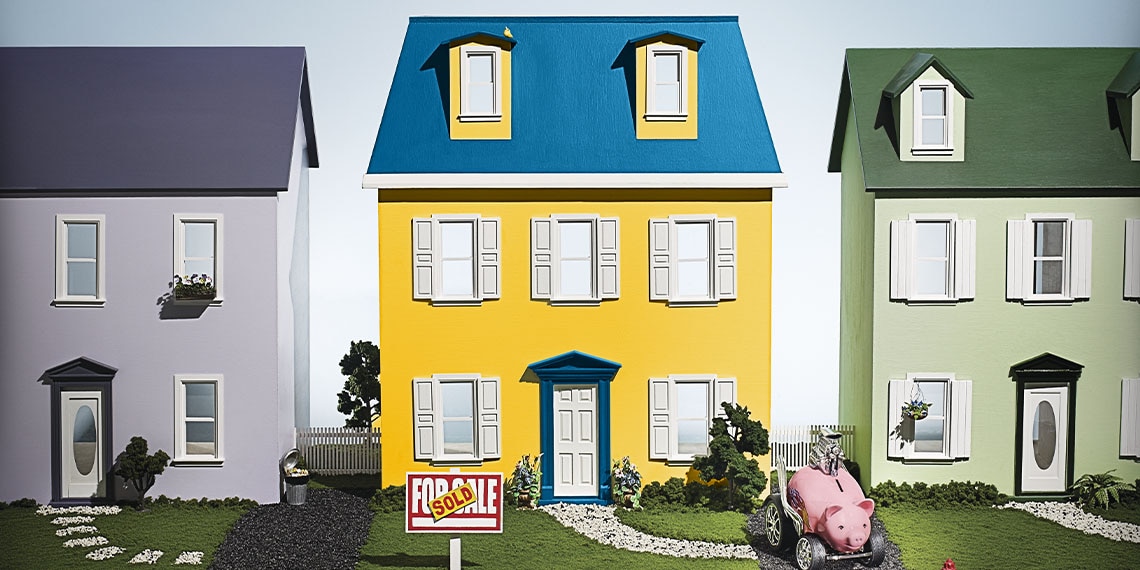
Realtors knocking on doors to encourage people to sell. Up to 30 offers on a single home.
As the pandemic has worn on and people have looked to escape to the suburbs or relocate across the country, one thing is clear: When it comes to housing, it’s a sellers’ market.
The evidence isn’t just anecdotal. As of early 2021, existing home sales were up almost 24% year over year, due in part to interest rates, which hit a record low of 2.65% that month. That sparked a high demand for homes, which has led to a low supply—and the combination has resulted in soaring prices: Between September 2019 and September 2020, U.S. homeowners accumulated a collective $1 trillion in additional home equity.
So it’s a good time to sell, right? Well…maybe. Every major decision has upsides and downsides, and comes with considerations. Here are the arguments for and against selling your home amidst the market madness.
Why Sell Now
● Homes are costly. Mortgage, property taxes, home insurance, HOA fees, mortgage insurance, utilities, maintenance and repairs—they all add up. And especially for empty nesters or older homeowners, it may not make sense to keep covering those costs. Look at what comparable homes in your area are going for: Would you make a profit by selling? If so, it may be an ideal time to downsize.
● Trade up. Younger people in a starter home may want to take a different tack and graduate to a larger place. Again, look to see what you might get for your current residence. If you stand to make a profit, this might be a great time to sell and use that money as a down payment on a bigger house.
● Low interest rates. Whether you’re downsizing, trading up or just need a change of scenery, mortgage interest rates make buying a new place especially appealing right now. Just know that the historically low rates are rising, and experts predict that they’ll climb further as 2021 goes on. In other words, sooner might be better.
Why Wait to Sell
● Low inventory. While the current market benefits you as a seller, all that competition works against you as a buyer. And the number of available homes has reached a record low. One reason: Tempting interest rates have lured buyers who aren’t also selling a home. This includes first-time homebuyers (who of course have no home to sell) and second-home buyers (who aren’t moving from their primary home). If you do decide to sell your existing home, have a Plan B for where to live in case you have to move before you can close on a new place.
● High prices. Yes, mortgage rates are low, but because of the low supply and high demand, prices are high…and escalating: Zillow predicts an increase of 13.5% by mid-year. Any money you might be saving with the low interest rate could be offset by the inflated prices that are happening in this sellers’ market.
● Tight credit availability. As of November 2020, the median FICO score for purchase loans was 745. That’s the median, of course, so some buyers will be able to secure a mortgage with a lower credit rating. But overall, the high bar makes it tougher for those with lower scores to secure loans.
● Financial stability. If you’ve ever rented, you know all about living in fear of a landlord increasing your rent. So if you’re thinking of moving to a rental, keep in mind that your home offers the benefit of being your own landlord.
● Equity. Don’t forget that by staying in your home, you’re continuing to build equity. Also, your home may be your biggest expense, but it’s likely also your biggest asset. And it gives you some powerful financial leverage, since you can borrow against its value if necessary.
● Rent it. If you want to move but aren’t quite ready to give up your home, consider renting it out: You might be able to make money and get to live in a different location. First, however, check to see if your HOA allows rentals.
Should You Refinance Instead of Selling?
With interest rates so low, refinancing has become a popular pastime: A full 17% of homeowners with a mortgage on their primary residence refinanced in 2020, according to one survey. Should you join them? Check your current mortgage interest rate: The rule of thumb is that refinancing might make sense if the new rate is lower by 1% or more. But the refinancing process isn’t simple or cheap, so it only pays off if you’re planning on staying in your home for a while.
Rich Beattie is a former executive digital editor of Travel + Leisure and has written for outlets such as The New York Times, Popular Science, New York Magazine and SKI.

